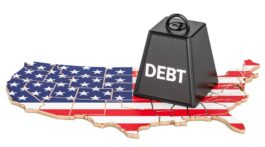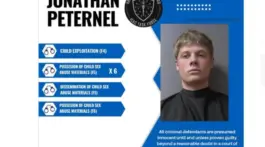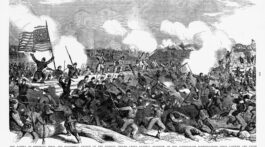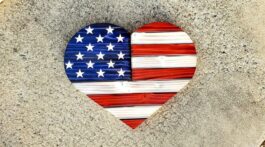by George Kelley
“Religion is the opiate of the masses” is one of the most often misquoted and misunderstood quotes attributed to Karl Marx. It is often quoted by those criticizing religion as a destructive addiction that brings upon an illusion of bliss as it slowly kills the will to live. But that is not what the quote means in its entirety. The full quote is “Religion is the sigh of the oppressed creature, the heart of a heartless world, and the soul of soulless conditions. It is the opium of the people.” Opium for Marx was a drug to help those in pain from illness, and thus here his analogy is one that is not quite so negative.
However, Marx does mean to say that religion fills a societal role, but like anything, can be abused. For Marx, religion was a reaction to the horror of the world, in his thinking he had a better solution, his revolution. However he did see religion as a barrier to action allowing for contentment in the will of God. I think he was wrong, but it was not his fault. He didn’t see how religion can also motivate you to go beyond the sigh and lift the oppressed, to give a heart to the world and breathe life into the soul. We see that in our city.
In Indianapolis people of different faiths come together to see what they can do to act on a world that is in trouble. In fact many are charged by their faith not to just sit there but to be motivated to change the broken world. Their belief does not lull them into complacency but jolts them into action. In my tradition it is called tikkun olam, repairing the world. We, as humans, must make the world a better place for those around us, everyone.
When I moved to Indianapolis 16 years ago I was struck by the vibrant interfaith or multifaith community of action existed in Indianapolis. As I became involved I found myself working alongside people of a variety of faith, motivated by their teachings, to make the city a better place to live. Over time groups came together, like the 10 Point Coalition, who as concerned citizens assist the police to help bring down the violence that plagues some of the streets of our city. Organizations like the former Interfaith Hunger Imitative that had a goal of doing what almost call faiths call its followers to do, feed the hungry, set and achieved goals, one organizing the complex system of food pantries in the city, helping to provide food security for the most vulnerable in our community. Faith motivated actions build housing, provide medical services and create opportunities for people that our society views as less valuable.
Too often we hear about acts of religious hate, bigotry or controversy or how backward the city is because of the religious right. Religion can and sometimes does get used to build walls to keep away things we don’t understand. It can cause us to become myopic and see suffering as part of the human experience ordained by the divine. But for many in our city, religion is the kick in butt to reach out and be a better citizen for all. To open new doors to those who seek to better themselves and to call us to cure the sickness in our society. Look for these organizations in your neighborhoods. See the work they do. I am not sure how Marx would react, but for me, sometimes religion is more like penicillin than an opiate.
George Kelley is the Education Director at Congregation Beth-El Zedeck in Indianapolis and very active in the interfaith community.












